AGILE Space Industries: How Innovation and Relationships Propel Success
Space Impulse Exclusive
Interview with Chris Pearson, CEO of Agile Space Industries
Agile Space Industries is a designer and manufacturer of rocket engines and propulsion systems for spacecraft.
We spoke to Chris Pearson, CEO of AGILE, to learn more about the business, his views on the rapidly developing space industry and vision for the future.
Deciding on a Career in Space
Chris Pearson, CEO of AGILE Space Industries, remembers getting paged in the middle of the night to check in on a $250 million space asset for a big MOD MilSatCom project.
“It was the best first job I could have worked in. People are under high pressure, and you have to learn how to ask the right questions and make decisions quickly”.
- Chris Pearson
It marked the start of a 25+ years career in the space industry, that ingrained into Pearson the importance of agility, communication, and reliability.
He has seen the global industry grow by leaps and bounds since he first entered the field during the late 90s, which has now culminated in his latest mission – a scale-up firm called AGILE Space Industries.
AGILE Space Industries operates at the intersection of research & development, innovative manufacturing processes and people. The company combines leading technology in chemical propulsion, advanced additive (3D) metal manufacturing and hot fire testing, allowing for orbital flexibility as well as mission flexibility that translates into greater security of defense assets and the furthering of science and exploration.
Building the Next Era of Chemical Propulsion
The company’s product range enables operations in all space verticals across the civil, commercial and military markets. One of their competitive differentiators is the speed of development and delivery time thanks to their integrated in-house design, manufacturing and testing processes.
“When we began, we spent about ten years actually testing other people’s devices” says Pearson. This gave the company deep relationships with end users, the hardware, but also an “intimate knowledge of the standards that you will need to fulfil to qualify.”
- Chris Pearson
AGILE develops chemical propulsion systems, providing thrusters and rocket engines for in-space propulsion: the same technology used by rockets making headlines, like SpaceX’s Falcon 9 or Falcon Heavy launch vehicles. Chemical propulsion is the most utilized type of rocket propulsion, and involves the use of chemical reactions to produce high-pressure and high-temperature gases that are expelled to generate thrust.
In contrast, electric propulsion systems use electrically accelerated ions to generate thrust, however, they both produce less power than chemical propulsion. Solar sails, using radiation pressure from the sun’s rays on large mirrored surfaces, are mainly designed for interplanetary space missions, as they only generate a small thrust. A radically new technology is nuclear propulsion, which uses atomic reactions rather than chemical reactions to generate thrust, although it introduces a wide range of risk management and complex regulatory issues.
Getting into orbit via rockets is not the end of the propulsion story. This is where AGILE comes in – maneuvering spacecraft to perform their mission.
AGILE adopts a different path to chemical propulsion innovation, leveraging the benefits of metal additive manufacturing to create new efficiencies and functionalities in thruster design.
The componentry that goes into rockets can be built through subtractive or additive manufacturing. Pearson describes the former as taking away pieces of metal and “tweaking them down to the size and shape you want”. With additive manufacturing (often known as 3D printing) you literally “build up complex shapes in layers to give fine features that enable much higher performance.”
AGILE acquired a small, metal additive manufacturing business in 2021 that gave them the ability not just to test, but to build propulsion systems in-house.
“The last part of the jigsaw was actually pulling in some really, really smart propulsion talent”, added Pearson. “An advisor from one of my old startups was advising AGILE, and he thought it was the perfect time for me to get involved with the company, which was at the point of qualifying its first engines and actually taking product to market”, Pearson continued.
It is how a previously well-respected research & development organization turned into an innovative manufacturing company.
“People and relationships, not just technology and engineering, are crucial to AGILE’s success”
Maintaining Industry Relationships
Unique to the space industry is the highly specialized skill and intricate engineering knowledge necessary to develop these space-bound products. Yet Pearson points out that people and relationships, not just technology and engineering, are crucial to AGILE’s success.
“As a mentor of mine told me years ago, the logos on business cards change but the core group of people you interact with over the years stays the same. It is an intimate industry and, to perform these technical feats, effective collaboration is needed that build on trusted relationships,” added Pearson.
Throughout his career, Pearson identified a pattern whereby development in technology was accompanied by an equally important step — commercializing said technology. AGILE Space Industries tapped into this pattern, continuously increasing its operational efficiency, to propel itself ahead in the space industry.
“The beauty of now being an established supplier is that any future investment is at reduced risk, as we have established products, processes and customer relationships – we are scaling up not starting up,” said Pearson.
This becomes evident through AGILE’s impressive growth figures. The business won its first large contract in 2020, generated US $8 million revenue in 2022 and expects to generate circa US $15 million this year, underpinned by demand from a variety of blue-chip clients. For instance, it contributes to NASA’s mission to successfully land payloads on the moon by helping boost the performance of propulsion systems, optimizing payload efficiencies on lunar missions. AGILE’s speed and efficiency also make it an ideal partner for the military’s need for rapidly responsive and unpredictable orbital maneuvers. One leading defense customer who worked with AGILE said they “achieved in 18 months what would have taken them 15 years otherwise”.
Accelerating the Future Space Market
Looking forward, Pearson believes that better value solutions are critical for the future advancement of the space industry. He also considers the speed of getting new technologies to market and reliably delivering hardware as key factors in commercializing space.
Pearson underlines the importance of maintaining grounded business models and realistic claims when developing future space technologies.
“My concern is if we have a couple of these high-profile kind of business failures… I don’t want the true promise of this space economy to be challenged or tarnished by that. It’s obvious that the potential is real, but some people may make some claims that aren’t quite as true,” said Pearson.






